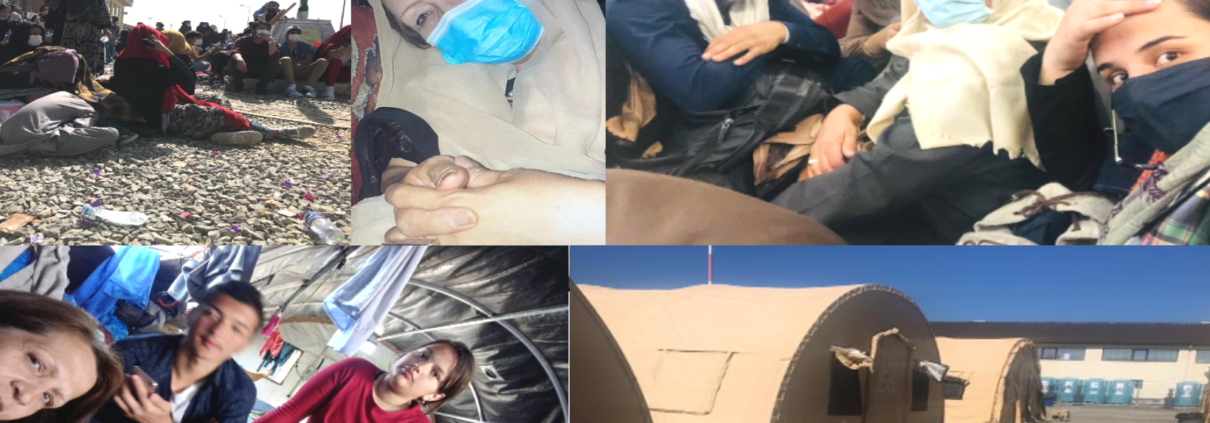Statement Urging Immediate Attention to Afghanistan Media Sector Refugees on International Refugees Day
From Dr. Michelle Ferrier, President, International Association of Women in Radio and Television
Najiba Ayubi had been a journalist in Afghanistan for more than 20 years. During this time, armed men showed up at her home multiple times, but she continued to work despite the threats. She was managing director of Killid Group, a non-profit media network that includes two of the country’s most popular magazines and eight radio stations. She won the 2013 Courage in Journalism Award by the International Women’s Media Foundation for her work. But when the Taliban came to her door in 2021, she decided to get her whole family to safety, an ordeal that took them from Afghanistan to Germany and then to the United States.
Najiba and her family now reside in California, waiting for the asylum process to move on her case and those of hundreds of other media workers that have fled from Afghanistan since August 2021. The months since the takeover and installation of the de facto regime has seen a continued decline in human rights for women and in particular, women media workers, journalists, broadcasters and others. Journalists, human rights activists, civil society members, minority groups, and women and girls have been marginalized from public life under the Taliban-run administration. Women and girls are prohibited from employment, moving about freely and other actions of free citizens. Recent actions by the Taliban on December 25, 2022 have effectively banned women in Afghanistan from the public sphere — and terminating female education and work rights across the country. Women held parliamentary seats, ministerial and diplomatic posts and senior offices, including as judges and chairs of independent commissions before the Taliban takeover. None remain in these positions today, according to a United Nations Special Rapporteur report on Afghanistan, released yesterday.
As women disappear from the public sphere, Afghan women journalists are vanishing at a rapid pace. Of the total number of women journalists in 2020, only 5% live and work in Kabul since the de facto authorities took back political power, according to our report by the Association of Women in Radio and Television-Kabul (released in October 2022 with support from Internews). The report documents displaced journalists who are in hiding or have fled to Pakistan and other countries, where their safety is still fragile and their livelihoods have been lost.
- 67.86% of the respondents have lost their jobs since the Taliban takeover in August 2021.
- 80.52% of the respondents said that Afghan media today is ‘very restricted.’
- 46.75% respondents said that spokespersons of the authorities do not respond to female journalists.
The Afghanistan press sector has been decimated. Strict restrictions had been imposed on women’s lives and on what the media can cover. Reporting under these conditions has not been easy, but journalists have continued to criticize abuse of power and injustice. Women journalists are hiding in their homes, forbidden to work. Those who manage to escape to neighboring countries find themselves in limbo, unable to work and still under threat from the Taliban. Our members and their families continue to be pursued across borders.
The International Association of Women in Radio and Television is concerned about the arrests and the situation of Afghan journalists in Pakistan, Turkey and in other geographies. Our members are women media workers and journalists, who are uniquely positioned to know and report continued human rights violations. As an international organization, we work across cultures and geographies to support women journalists in telling stories with a gender-focused lens and an intersectional view.
We have received reliable information about the arrest of Afghan journalists by the Pakistani police in Islamabad. This arbitrary detention of journalists and media workers who reside in a country with visas and legal documents is against all international norms and is a violation of international agreements on human rights, including the International Covenant on Civil and Political Rights, the International Covenant on Economic, Social and Cultural Rights, the International Convention on the Elimination of All Forms of Racial Discrimination, the Convention against Torture and Other Cruel, Inhuman or Degrading Treatment or Punishment, the Convention on the Elimination of All Forms of Discrimination against Women, the Convention on the Rights of the Child, the Convention on the Rights of Persons with Disabilities and the Rome Statute of the International Criminal Court.
The International Association of Women in Radio and Television asks governments across the globe, international organizations and civil society to provide resources to combat the deterioration of free speech, and to strengthen initiatives for a free press and freedom of expression for women journalists, in Afghanistan and elsewhere. On June 20, World Refugee Day, IAWRT would like to draw attention to the difficult and tenuous situation of Afghan refugees, especially women media workers, and to urge governments to provide a safe living environment for all immigrants, especially journalists, in accordance with international norms.
Dr. Michelle Ferrier is the president of the International Association of Women in Radio and Television and the executive director of the Media Innovation Collaboratory, USA.
* * *
The International Association for Women in Radio and Television (IAWRT) is a global organization formed by professional women working in electronic and allied media with a mission to strengthen initiatives towards ensuring that women’s views and values are an integral part of programming and to advance the impact of women in the media. IAWRT is a non-government organization in consultative status with the United Nations Economic and Social Council (ECOSOC). IAWRT has more than 400 members in 55 countries and 14 country chapters across the globe.
Contact: [email protected]
REPORT:








